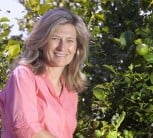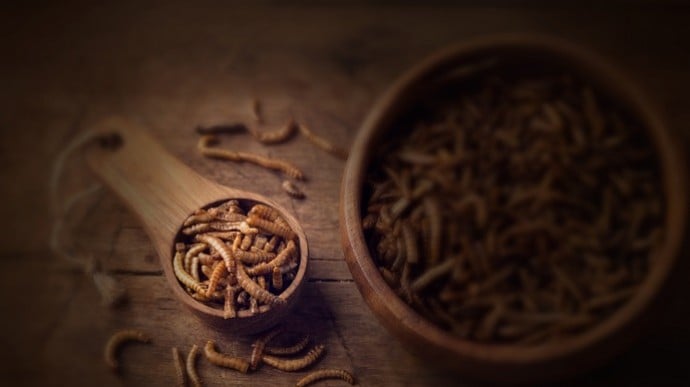Food safety is vital for public health and well-being. The World Health Organisation (WHO) recognises this and used it as the theme for World Health Day 2015 celebrated on 7 April. The Institute for Food, Nutrition and Well-being (IFNuW) at the University of Pretoria (UP) plays an important role in addressing this problem in South Africa and Africa.
Food safety is internationally recognised as one of the most important risks to public health and food security. Safe, healthy, nutritious, affordable food is a basic human right addressed in the United Nations Universal Declaration of Human Rights and in the South African Constitution.
Food safety has also been identified as one of the key national focus areas in the National Policy on Food and Nutrition Security. Food becomes unsafe due to spoilage and contamination while being produced, packed, transported, stored, processed or prepared. Unsafe food poses multiple threats to human health and well-being and can negatively affect productivity, economic growth and trade. Food-borne pathogens can cause more than 200 different diseases. One of the symptoms of these diseases is diarrhoea, which particularly affects children.
In South Africa, the incidence of diarrhoea in children below the age of five doubled from 128,7 per 1 000 in 2004 to 268,7 per 1 000 in 2005. Furthermore, the Centre for Enteric Diseases, in the 2006 South African Health Report, attributed 15% of mortality in children below age five to gastroenteritis, second only to lower respiratory tract infections. The United Nations Millennium Development Goal 4, ‘reducing by two thirds the under-five mortality rate by 2015’, emphasised that strategies to reduce the burden of disease attributable to diarrhoeal pathogens in children under five years need to become a major focus. Unsafe food constitutes a loss in the food system and contributes to food waste. In South Africa over 12 million people struggle to gain access to enough food to meet their daily requirements. Food safety is therefore a major concern.
Prof Lise Korsten of the University's IFNuW reports that South Africa has too little information on food-borne disease outbreaks. Food safety is also not a major focus area despite the global reported disease outbreaks and the known underreporting in developing countries. The WHO estimates that more than two million people die annually due to food- and water-borne diseases. Foods containing harmful bacteria, viruses, parasites or chemical substances can, therefore, negatively impact on public health and food security. New threats to food safety are also constantly emerging due to changes in food production, distribution and consumption patterns; environmental changes due to global warming; new and emerging pathogens; and antimicrobial resistance. Growing travel and trade further increase the likelihood that food contamination can spread rapidly and cause major disease outbreaks. This not only affects public health and trade but also impacts on the trust and credibility of all the players in the supply chain.
Food safety is distinct from food security but is also an important part of, and pre-requisite for, sustainable food security. The WHO World Health Day 2015 gave recognition to the important role of food safety in food production, processing and trade. Therefore, the WHO used this World Health Day to call on policy makers around the world to build and maintain adequate food safety systems and infrastructures, respond to and manage food safety risks along the entire food chain, integrate food safety into broader national food policies and programmes, and foster communication, information sharing, and joint action between public health, animal health, agriculture and other sectors. The WHO World Health Day should contribute to an improved understanding of the challenges faced, and the necessity to provide food safety assurance for all. This will require more effective collaboration and coordination among all role players in order to prevent, detect and respond to food-borne diseases.
UP is addressing the national food safety challenges through research conducted by the IFNuW and the DST/NRF Centre for Excellence in Food Security that the University co-hosts with the University of the Western Cape. This research seeks to find practical ways to improve national food supplies through food safety systems, more effective detection of food-borne pathogens and prevention of contamination in the supply chain from production to consumption. Areas where improvements could be made include water quality in irrigation and processing, more effective food preparation, food storage, management of waste water, sanitation and personal hygiene. Food safety is a shared responsibility that can only be achieved within an effective, regulated system.
For more information contact Prof Lise Korsten on 012 420 3295 or at [email protected].
Prof Lise Korsten and story by Prof Sheryl Hendriks
April 7, 2015


Professor Sheryl Hendriks completed her undergraduate studies, honours, master’s and PhD at the former University of Natal, where she also taught until joining the University of Pretoria (UP) in 2010.
Moving to UP expanded and enhanced her research, not only because of the geographic proximity to government but because it allowed her to network with colleagues at UP, in Africa and internationally. Prof Hendriks says that the University’s reputation as well as UP management’s support of transdisciplinary research have been invaluable in advancing her research profile, impact and reach.
Research in food security policymaking is essential to achieve the Sustainable Development Goals (SDGs) and advance development. Understanding the causes, outcomes and impact of policy decisions related to a range of sectors (agriculture, health, trade, welfare etc.) helps to identify potential policy choices, combinations and directions. Ultimately, these decisions determine the levels of poverty, inequality and food insecurity experienced by households.
Prof Hendriks leads a large research group that explores the emerging field of improving food systems to ensure fairer, healthier diets and sustainability. The group includes postgraduates and colleagues from UP’s Department of Agricultural Economics, Extension and Rural Development in the Faculty of Natural and Agricultural Sciences (NAS), and connects with colleagues in networks across Africa and beyond. Under the RETHINK@NAS initiative ¬– which allows for University-driven community projects that support transformation in all its forms – this group will expand across faculties.
This work was carried out in Prof Hendriks’s role as a member of the United Nations Food Systems Summit (UNFSS) Scientific Group and contributed a significant analysis to guide the group’s 2021 deliberations and plan of work. It will also expand to supporting the country implementation of actions to support the true value of food. The work was inspired by Prof Lawrence Haddad (leader of the UNFSS Action Track on ending hunger) and Prof Joachim von Braun (chair of the UNFSS Scientific Group).
Prof Hendriks says that since 2006, her academic mentor has been Dr Ousmane Badiane, who introduced her to the dynamics of African development and has provided her with countless opportunities to work directly in applying research in practical support to African governments as they seek to achieve food security. “Through my engagement in various think-tanks and policy engagements, I find meaning in life – contributing to decisions that can improve the lives of ordinary people,” she says. “This is a dream come true for me.”
Young people interested in following her field of research need to be passionate about helping others and acutely aware of the bigger picture in development, Prof Hendriks advises. Food security analysis can be attempted only at postgraduate level, she adds, when students have a solid grounding in a relevant field and have developed skills to cope with complex thinking.
When not pursuing research endeavours, Prof Hendriks maintains a rose and herb garden, sews, scrapbooks and walks her dogs.
 Story
Story
Cricket à la king? How about a yellow mealworm burger? Foods that may previously have evoked a ‘yuck’ response are now firmly on the menu. Research into edible insects by the Department of Zoology and Entomology at the University of Pretoria (UP) is exploring how to rear and harvest this food of the future.
 Story
Story
University of Pretoria (UP) researchers have found that the antioxidant content of certain types of tea can be likened to that found in recommended portions of fruit and vegetables.
 Infographic
Infographic
Half a cup of black tea, oolong tea or green tea contained the same amount of antioxidants with radical scavenging capabilities (RSC) as that of a 200mg vitamin C tablet.
Copyright © University of Pretoria 2025. All rights reserved.
Get Social With Us
Download the UP Mobile App